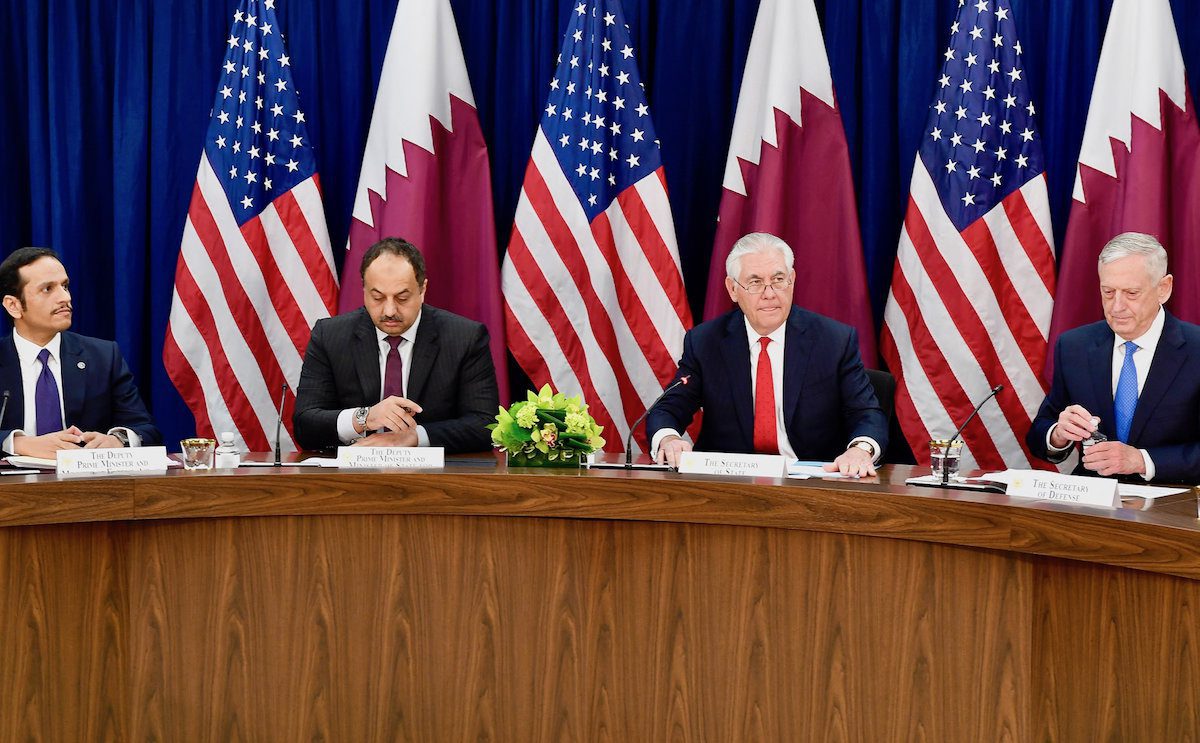The War on Qatar That Almost Happened

Alex Emmons reports that the Saudis and their allies intended to invade and take over Qatar last year, but pressure from Tillerson prevented this from happening:
The Intercept has learned of a previously unreported episode that stoked the UAE and Saudi Arabia’s anger at Tillerson and that may have played a key role in his removal. In the summer of 2017, several months before the Gulf allies started pushing for his ouster, Tillerson intervened to stop a secret Saudi-led, UAE-backed plan to invade and essentially conquer Qatar, according to one current member of the U.S. intelligence community and two former State Department officials, all of whom declined to be named, citing the sensitivity of the matter.
If this report is correct, it confirms that the Saudis and Emiratis are even more reckless than we already knew them to be. They are an even greater menace to regional stability and peace than they appeared to be. It is also another reminder that Trump’s embrace of Mohammed bin Salman and his father over the last year and a half is dangerous and irresponsible, and it has encouraged them in their destructive and destabilizing behavior. Tillerson deserves credit for preventing a costly and unnecessary military intervention that would have further destabilized the region and cost lives. It is unfortunately not surprising that the one thing that he managed to get right during his tenure as Secretary of State contributed to his eventual downfall. It is a sign of the corrosive influence that the Saudis and Emiratis have on U.S. foreign policy that their hostility to Tillerson was probably one of the main causes for his removal.
The story shows that the U.S. can successfully rein in its reckless clients when it wants to. If the Trump administration wanted to use its influence to halt the disastrous, atrocious Saudi coalition war on Yemen, they could do so. It might be more difficult than preventing an attack on Qatar, but it could still be done. The Trump administration doesn’t rein in the Saudi coalition in Yemen because it has no wish to do so. It supports the Hodeidah offensive because it is indifferent to the fate of millions of Yemenis that might die of starvation as a result. The administration enables deliberate Saudi attacks on civilian targets in Yemen because it values catering to despotic regimes more than it does adhering to international law and respecting human rights. Millions of poor, starving Yemenis lack the clout and connections that Qatar’s government has, and they have no one to speak for them, so they are subjected to the worst possible treatment with Washington’s approval while Qatar is shielded from Saudi invasion.